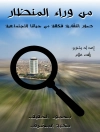In ‘The Jew, The Gypsy and El Islam, ‘ Richard Francis Sir Burton embarks on a profound exploration of cultural identity and religious diversity through a comparative analysis of Jewish, Romani, and Islamic societies. Written in Burton’s signature evocative prose, the book weaves together travel narratives, historical context, and anthropological observations, challenging prevailing stereotypes and revealing the complexities and nuances of each group. Burton’s narrative reflects the 19th-century fascination with exoticism and the interconnectivity of civilizations, positioning the work within the broader context of colonial literature and ethnographic studies of his time. Richard Francis Sir Burton, a polymath and explorer, was renowned for his courage and intellectual curiosity. His extensive travels across the Middle East, Africa, and the Americas greatly influenced his perspective on cultural interactions and human behavior. Burton’s affinity for embracing the unfamiliar and his proficiency in various languages allowed him to engage deeply with the communities he studied. This book can be seen as a culmination of his lifelong interest in the comparative study of cultures and religions, advocating for understanding in an era marked by division. This work is essential for readers interested in anthropology, history, and cross-cultural studies. Burton’s unique insights challenge us to confront bias and appreciate the rich tapestry of human experience. His compelling narrative encourages reflection on contemporary issues of identity and belonging, making it a thought-provoking addition to any scholarly library.
เกี่ยวกับผู้แต่ง
Captain Sir Richard Francis Burton (1821–1890) was a British explorer, geographer, translator, writer, soldier, orientalist, cartographer, ethnologist, spy, linguist, poet, fencer, and diplomat. Renowned for his wide-ranging interests and substantial contributions to knowledge, Burton was a prolific author and a daring adventurer. His noteworthy ability to master languages and cultures allowed him to produce one of the first unexpurgated translations of ‘The Arabian Nights’ which introduced Western readers to a rich tradition of Middle Eastern folklore. His explorations were not confined to literature; Burton also embarked on extensive travels, including his famous attempt to discover the source of the Nile River with fellow explorer John Hanning Speke. Burton’s literary style reflects his passion for culture and adventure, weaving his observational acuity with his experiences among diverse peoples. His work, ‘The Jew, The Gypsy, and El Islam’ (1898), showcases this blend of scholarly insight and narrative flair, as Burton explores the historical and social nuances of these cultural groups. The book displays Burton’s contentious views and his keen ethnographic eye, featuring discussions on rituals, language, and the controversies of the times. Burton’s oeuvre is a testament to his role as a complex, enigmatic figure of the 19th century, whose life and work continue to fascinate scholars and adventure seekers alike.












